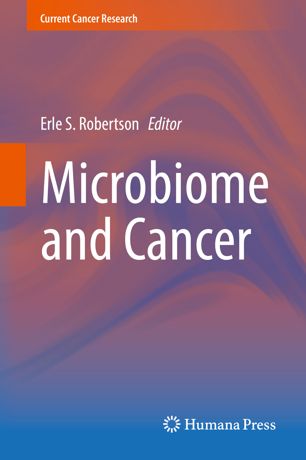

Most ebook files are in PDF format, so you can easily read them using various software such as Foxit Reader or directly on the Google Chrome browser.
Some ebook files are released by publishers in other formats such as .awz, .mobi, .epub, .fb2, etc. You may need to install specific software to read these formats on mobile/PC, such as Calibre.
Please read the tutorial at this link: https://ebookbell.com/faq
We offer FREE conversion to the popular formats you request; however, this may take some time. Therefore, right after payment, please email us, and we will try to provide the service as quickly as possible.
For some exceptional file formats or broken links (if any), please refrain from opening any disputes. Instead, email us first, and we will try to assist within a maximum of 6 hours.
EbookBell Team

4.4
12 reviewsThis book ventures into a new and exciting area of discovery that directly ties our current knowledge of cancer to the discovery of microorganisms associated with different types of cancers. Recent studies demonstrate that microorganisms are directly linked to the establishment of cancers and that they can also contribute to the initiation, as well as persistence of, the cancers. Microbiome and Cancer covers the current knowledge of microbiome and its association with human cancers. It provides important reading for novices, senior undergraduates in cancer and microbiology, graduate students, junior investigators, residents, fellows and established investigators in the fields of cancer and microbiology. We cover areas related to known, broad concepts in microbiology and how they can relate to the ongoing discoveries of the micro-environment and the changes in the metabolic and physiologic states in that micro-environment, which are important for the ongoing nurturing and survival of the poly-microbial content that dictates activities in that micro-environment.
We cover the interactions of microorganisms associated with gastric carcinomas, which are important for driving this particular cancer. Additional areas include oral cancers, skin cancers, ovarian cancers, breast cancers, nasopharyngeal cancers, lung cancers, mesotheliomas, Hodgkin’s and non-Hodgkin’s lymphomas, glioblastoma multiforme, hepatocellular carcinomas, as well as the inflammatory response related to the infectious agents in cancers. This book covers the metabolic changes that occur because of infection and their support for development of cancers, chronic infection and development of therapeutic strategies for detection and control of the infection.
The field of microbiome research has exploded over the last five years, and we are now understanding more and more about the context in which microorganisms can contribute to the onset of cancers in humans. The field of microbiome research has demonstrated